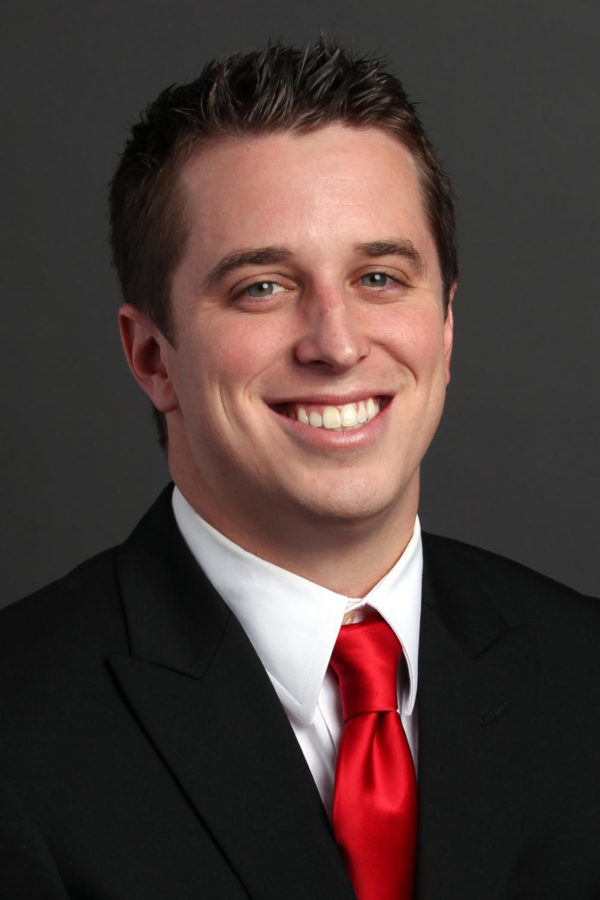One-on-One with Charlie Henry
June 25, 2014
It didn’t take Charlie Henry long to work his way up the ladder. On June 9, ISU basketball coach Fred Hoiberg named Henry assistant basketball coach after his second year with the program. Prior to Iowa State, Henry spent time as an assistant video editor for Utah and was a video intern with the Indiana Pacers in 2011-12.
You’ve worked with teams in Michigan, Utah and Indiana. How did you end up in Ames?
That’s actually a good question. I met Coach Hoiberg and former assistant T.J. Otzelberger over the period from when I was transitioning from Utah to the Pacers. I met Hoiberg after his first year at Iowa State and I had actually known T.J. prior to that. The very first place I was at [Romulus High School in Detroit, Mich.], we had a couple players come out of [Romulus High], Will Clyburn being the most recent, and the coach there coached T.J. in college, so that’s how I knew T.J.
You’ve worked with players in different ranks from high school to the NBA. How has dealing with and experiencing different types of players helped you?
It’s all different at each level, but essentially it’s all the same. There’s the really good ones that are self motivated and want to be coached and those are the ones you try to surround yourself with. Obviously, there are going to be other guys that need more [coaching] in one area and you work more with them to get them what they need. I’ve found that there is more in common than there are differences. You think it’s a big jump, and it is in a lot of ways, but in the essence of what makes players unique, it’s the same.
Are there different methods when coaching a high school player as opposed to an older college player?
I think there is. Obviously, you play off your head coach, and our head coach is as good as anyone and he wants us to be positive and believe that encouragement is the best form of motivation and he wants us to build relationships with our guys, and it has worked extremely well. You play off him and try to support him and do the things he values and that’s what we do on a daily basis is try to encourage guys but still challenge them when needed.
You spent some time working for the Indiana Pacers, what did you take away from working with an organization as big as that?
The level of professionalism from the top down. It’s a special organization and I think it’s one of the few special ones in the NBA. Just from talking with a few other people, I think it’s special because it’s about the basketball. A lot of organizations get tied up doing this and that, but it’s still all about basketball in Indiana and I think that’s special. The level of professionalism everyone has going about their job every day, it’s special and I consider myself lucky to have been exposed to that at such a young age.
Last season you served as the director of basketball operations for ISU basketball. What were some of the day-to-day things you did?
A ton of video, a ton of film, a ton of organizing and planning behind the scenes for things like the practice schedule and structuring things with Coach Hoiberg. I was lucky. It involved me working closely with each of our assistants, it involved me working closely with Coach Hoiberg.
Is working with video something that gives you an added element to your coaching ability?
That’s where the game is heading. I’m lucky to work for a guy that played as a player and you have other guys like [Indiana Pacers coach] Frank Vogel and [Miami Heat coach] Erik Spoelstra who worked their way up through video. One, you learn the game because you study your offense and your defense as well as other teams’ offense and defense. You see what works, what doesn’t work. And second, you have the ability to bring guys in and show them what you think they need to work on or what they’re doing well at and I believe that can be a powerful tool with young men who are standing on their own.
Our guys want to be really good, and that’s where it all starts with is their drive. They also don’t want to just be told things anymore. They want to be shown things. It’s more than saying they need to do this because this is what I think. It’s telling them you need to do this and showing them, showing them a positive example of other guys they look up to. They look up to other guys, guys in the pros. They aspire to get to that level and you show them those guys doing it and you say hey, if he can do it, why can’t we?
How advantageous is it that you have already worked with the players prior to starting as assistant coach?
It’s advantageous. I know their strengths, I know their weaknesses and I feel like I have a pretty good grasp on what they need to work on and now they have a relationship and a rapport with me where they can walk right in and [I] can challenge them in certain areas and keep improving.
Basketball aside, what do you like to do in your free time?
My fiance is here in Ames as well, and pretty much any time that’s not work related, we just enjoy living here in Ames and being a part of the [ISU] community. It’s obviously been great for us and it’s been a happy two years, that’s for sure.







